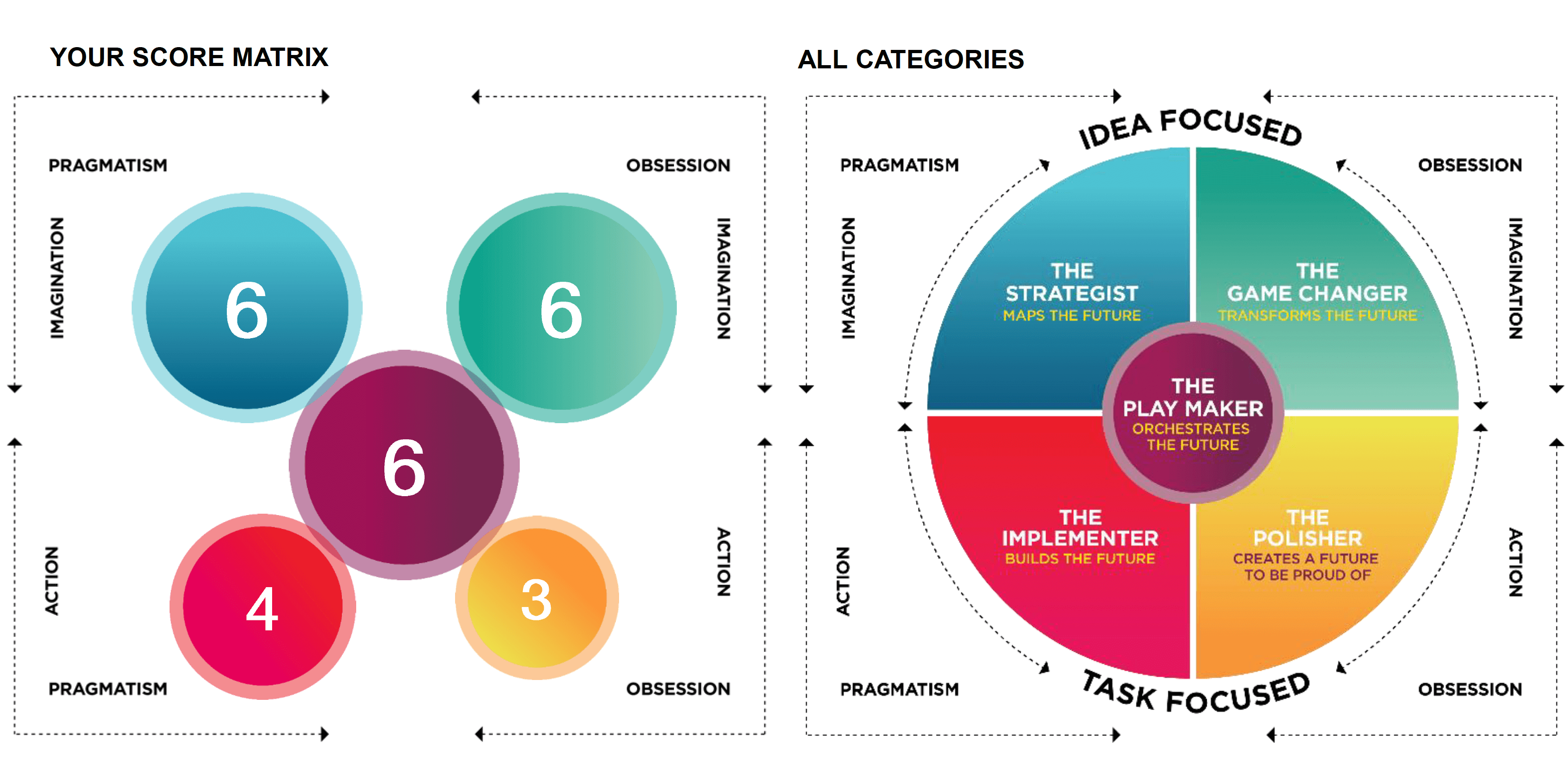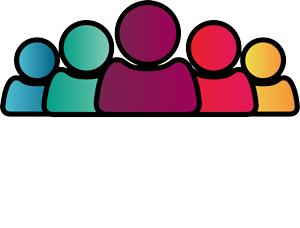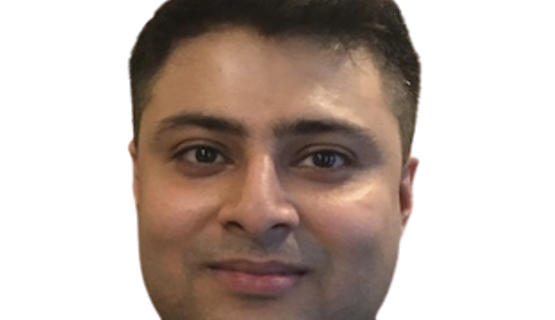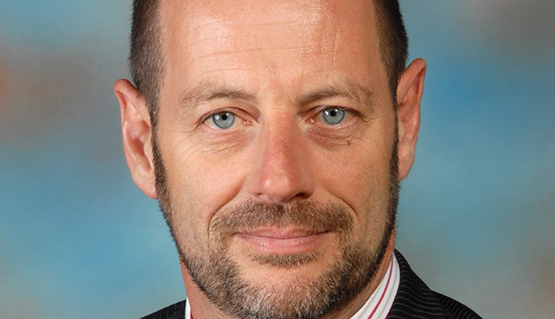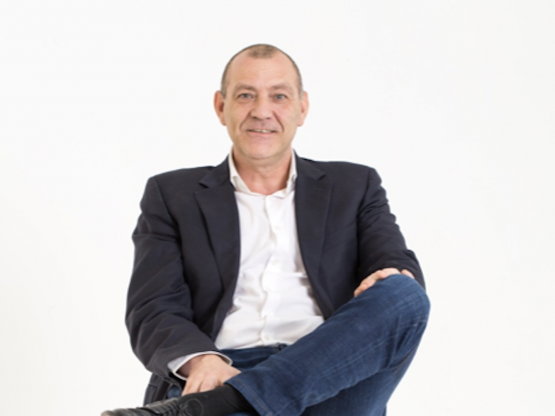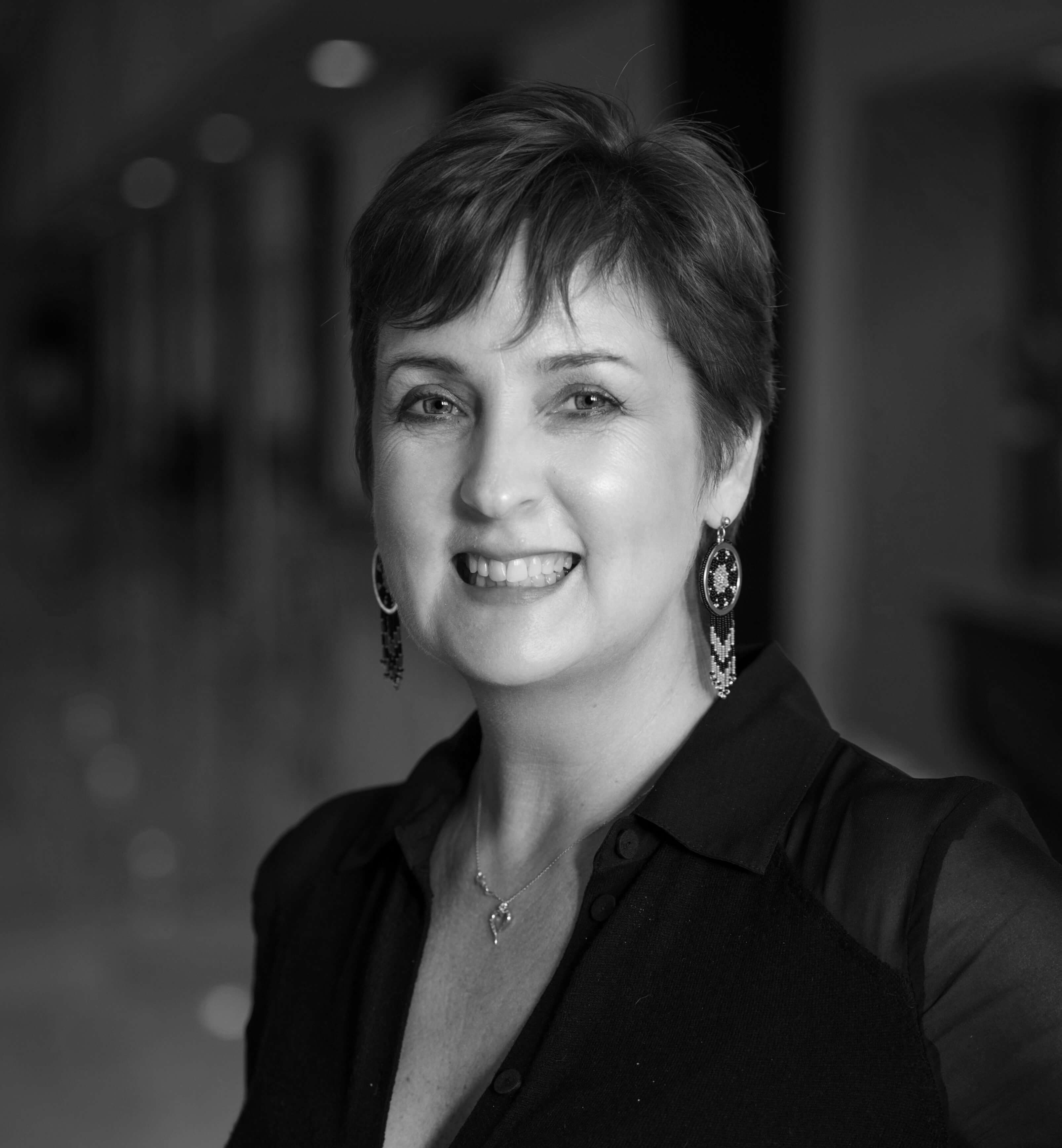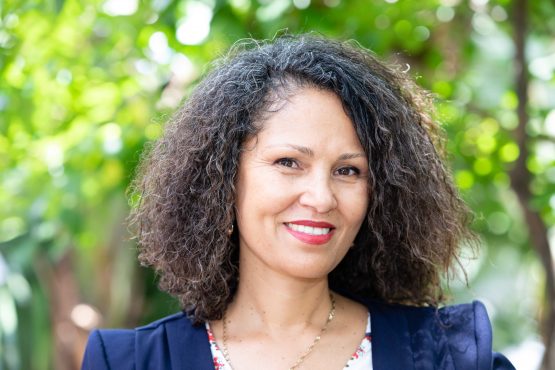
Chair
StreetSmart South Africa, Symphonia for South Africa and Safer Together.
Game Changer/Strategist/Play MakerMelanie Burke is an award-winning social innovator who is also an experienced people and development practitioner. She brings together the academic and practical knowledge required for impact entrepreneurship and societal change.
Melanie has some 30 years' experience in the financial services and innovation fields and has strong expertise in people management. She holds an international Master of Business Administration (MBA) with an Information Technology specialisation and is a recipient of the TT100 award as well as the Women in ICT award. She also holds Project Management, Marketing and Diversity Management qualifications. Melanie was recognized for her ability in this field as a recipient of the Excellence in Diversity award and focuses on transformation and innovative solutions for social development, growth, personal and business support.
While retaining her independence, she is associated with several other organisations where she brings to bear her expertise regarding Leadership Development, Team Building, Cross-sector and Intra-sector Collaboration, Innovation, Technology, Large-scale Systems Change and Entrepreneurship.
Melanie is currently the Chairperson of Symphonia for South Africa, a social enterprise responsible for the award-winning Partners for Possibility leadership development programme which has, over a decade impacted more than a million lives.
She is sought-after locally and internationally as a facilitator, public speaker, MC and Programme Director of intimate as well as very large events. Her discretion and sensitivity to the context in which she operates, is part of her appeal.
You have had a successful career, what does your GC Index profile tell us about what underpins your success?
I am so excited by the affirmation I received from my GC Index, because if you had done this with me maybe ten years ago, I think some of the scores would have come up quite high, but the essence of who I am as a leader remains the same. I love that I’m very moderately balanced with the scores that I’ve come up with and I’m thrilled that I am in actual fact recognised as a Play Maker, Strategist, and Game Changer combination, which is very much in balance. I love reminding myself that my Implementer profile was relatively low, because I do not like the detail. I can see the detail and work with it, but it’s not my preference. I don’t like admin. I always surround myself in teams with people who love that kind of stuff, because it then allows me to also work with the other role that’s come up relatively high for me, which is Strategist. The idea for me of being quietly in the background orchestrating things, I love that. I don’t particularly like the limelight; if it’s a requirement for the role then I will show up and do a really excellent job. But I prefer to be in the wings making sure that all the amazing people that I’m surrounded by, are actually doing what they do best. And I think for me the outcome of my CG Index was really affirming, it just… you kind of tick a box, and it says this who you are and who you have been for a long time, and now in the time of your life where you’re at, you are choosing very differently to do the same things, but on different terms. And I think that’s really amazing.
Tell me about a time in your life, in your career ,when you felt most in tune with your GC Index scores.
Maybe I should start by saying, when I first started my career, I started it out of desperation. Back in the mid to late eighties I had matriculated, having been on a scholarship at a private school. But my personal circumstances were that my mom was a widow, we were four children, I had a brother who was straight after me and probably a year after me at school, and so university and those kinds of options were important for us to consider. I’d come out of this private school education not really knowing what I wanted to do. And so I thought, well maybe I’ll just go for some kind of humanities degree, I’ll do a BA and at least say I’ve got something.
Because at that stage I hadn’t felt any real purpose or calling yet. And so I was on the scholarship sponsored by Volkswagen, and when I was making the decisions about what to do, one of the options was to go and apply for a job there. And I remember coming away from the interview, and it was a job in the typing-pool, so I’m talking quite a long time ago because people don’t have typing-pools any more. But it was a job in the typing-pool, and I remember driving home from Volkswagen, home in Uitenhage, and you take this main road which takes you from the industrial area straight through town into the township where I lived. And I was just thinking over the feelings that I took away from the interview, and I realized I did not want to work in the typing-pool. And the only reasons I was even invited for an interview, was because I had some word processing skills because I was the editor of the school newspaper, and secondly because Volkswagen felt they might have an obligation to me.
I said to the Universe while I’m driving in the car, I said: I need a sign please; I need a sign to tell me where to go and what to do. And as I came out of that thought and looked around me, I noticed a parking spot on the main road, right to the left in front of me. And when I parked, I looked around to see what the area was, and I was right outside the heart of all the banks. I looked around and I thought well the one that was sort of positioned decently for me to do an eeny-meeny-miny pick, was First National Bank. I walked across the road and I asked if I could see the accountant or the person responsible for HR. Because I knew immediately after I’d been to the interview at Volkswagen, that that was not what I wanted to do, I knew that, I knew what I didn’t want, but I didn’t know what I did want.
Went into the bank. I was very fortunate, all sorts of things conspired to make the opportunity possible for me: the person who interviewed me wasn’t the regular branch-manager, again this is the eighties, in South Africa in a place called Uitenhage, very different time. And I remember being invited into the office of the branch-manager, who wasn’t there, but the accountant did this, and he met me and started a conversation, and said: Well let me find you an application form and then let me give that to you. So that was kind of the end of the conversation. I was going to take the form away and go home. And when he came back I said to him: I wonder, since I’m here and you’re here… and the other thing in the back of my head, was I looked really good that day, I’d just been for an interview, so confidence levels were off the charts, and I said to him: You’re here, I’m here, why don’t we just take this opportunity to make this the interview, while we fill in the form. And literally a week later I started at the bank. And what he saw in me, I try and do with other people now, you know if you are a Play Maker or Game Changer, I look for those people. And you talked about how I was setting people up.
Somebody saw something in me, and that started the best opportunity of my life, of my career. And I try and do that for other people, so I’m always looking for those gifts and contributions that people have to make, and sometimes they don’t even realize it for themselves. So I’ve spent my career developing people, developing my own capacity, showing up and stepping out, and often breaking the rules, because I think that’s what you are supposed to do. But it mostly came from not knowing what I wanted to do. And I’ve discovered in the last ten to fifteen years of my career, that I have become more intentional, and I love getting scores like these, and profiles like this because they do help validate what you know in the deepest parts of yourself; at the place where you are most authentic.
About fifteen years ago when that happened to me again, I realized that I knew better what I wanted to choose, and so I have stepped very intentionally into looking for work that fed my soul; that allowed me to contribute on my terms, be a Play Maker and Game Changer, but don’t have to have any original ideas myself. I’m not an original thinker, I’m okay with that, I know how to take an idea and take it further, and I also know when to let it go when it’s time. I can step away when I am no longer able to be as full, in that space.
So my career has been really exciting, I’ve managed and led, I prefer to use the word led, because I think management means something else for me. And I’ve always found the other people to help me manage while I lead, because again, working to people’s strengths. So I’ve led large teams and small teams, and the bulk of my career was in banking, so I spent about fifteen years with First National Bank in the retail space, and my last job there, was kind of what got me to where I’ve ended up in the end.
I was a product manager and I worked with the youth and student market, so that ignites my passion for young people, and I still do a lot of work… You know StreetSmart South Africa was an organisation that we started, to facilitate viable lives for children at risk, and children who had landed on the streets, and so again young people for me are very important. And so I also at the time… and for young people who will listen to this they will think: Wow how long did she stay at one place. I also, at a point, recognised that I needed to give the organisation time to receive my contributions, and for me to receive what was possible to come back at me. And I want to say that my first part of my career I was incredibly well supported, I was recognised as a mover and shaker and so the training was amazing, and the opportunities were amazing. And you have to show up.
I think it was Oprah Winfrey who says: Luck is actually just where preparation and opportunity meet. So I’ve had a long career in financial services, and then with the last part of it moving into information technology. I think that also indicates to you that I’m an early adopter: I like to learn faster than anyone I’m working with so that I know, not because I need to do anything with it, I just need to know, it helps me when I want to put things together and orchestrate other people to do things. So the information technology side was very interesting for me and that’s led me to really where I am now, because I recognize that technology is an enabler and who really is the one who creates and innovates, is the human being. So in organisations and in my consulting practice, I spend time making sure the human beings are freed up to do the best possible work that they can do, and that largely is how I spend my time now.
Because at that stage I hadn’t felt any real purpose or calling yet. And so I was on the scholarship sponsored by Volkswagen, and when I was making the decisions about what to do, one of the options was to go and apply for a job there. And I remember coming away from the interview, and it was a job in the typing-pool, so I’m talking quite a long time ago because people don’t have typing-pools any more. But it was a job in the typing-pool, and I remember driving home from Volkswagen, home in Uitenhage, and you take this main road which takes you from the industrial area straight through town into the township where I lived. And I was just thinking over the feelings that I took away from the interview, and I realized I did not want to work in the typing-pool. And the only reasons I was even invited for an interview, was because I had some word processing skills because I was the editor of the school newspaper, and secondly because Volkswagen felt they might have an obligation to me.
I said to the Universe while I’m driving in the car, I said: I need a sign please; I need a sign to tell me where to go and what to do. And as I came out of that thought and looked around me, I noticed a parking spot on the main road, right to the left in front of me. And when I parked, I looked around to see what the area was, and I was right outside the heart of all the banks. I looked around and I thought well the one that was sort of positioned decently for me to do an eeny-meeny-miny pick, was First National Bank. I walked across the road and I asked if I could see the accountant or the person responsible for HR. Because I knew immediately after I’d been to the interview at Volkswagen, that that was not what I wanted to do, I knew that, I knew what I didn’t want, but I didn’t know what I did want.
Went into the bank. I was very fortunate, all sorts of things conspired to make the opportunity possible for me: the person who interviewed me wasn’t the regular branch-manager, again this is the eighties, in South Africa in a place called Uitenhage, very different time. And I remember being invited into the office of the branch-manager, who wasn’t there, but the accountant did this, and he met me and started a conversation, and said: Well let me find you an application form and then let me give that to you. So that was kind of the end of the conversation. I was going to take the form away and go home. And when he came back I said to him: I wonder, since I’m here and you’re here… and the other thing in the back of my head, was I looked really good that day, I’d just been for an interview, so confidence levels were off the charts, and I said to him: You’re here, I’m here, why don’t we just take this opportunity to make this the interview, while we fill in the form. And literally a week later I started at the bank. And what he saw in me, I try and do with other people now, you know if you are a Play Maker or Game Changer, I look for those people. And you talked about how I was setting people up.
Somebody saw something in me, and that started the best opportunity of my life, of my career. And I try and do that for other people, so I’m always looking for those gifts and contributions that people have to make, and sometimes they don’t even realize it for themselves. So I’ve spent my career developing people, developing my own capacity, showing up and stepping out, and often breaking the rules, because I think that’s what you are supposed to do. But it mostly came from not knowing what I wanted to do. And I’ve discovered in the last ten to fifteen years of my career, that I have become more intentional, and I love getting scores like these, and profiles like this because they do help validate what you know in the deepest parts of yourself; at the place where you are most authentic.
About fifteen years ago when that happened to me again, I realized that I knew better what I wanted to choose, and so I have stepped very intentionally into looking for work that fed my soul; that allowed me to contribute on my terms, be a Play Maker and Game Changer, but don’t have to have any original ideas myself. I’m not an original thinker, I’m okay with that, I know how to take an idea and take it further, and I also know when to let it go when it’s time. I can step away when I am no longer able to be as full, in that space.
So my career has been really exciting, I’ve managed and led, I prefer to use the word led, because I think management means something else for me. And I’ve always found the other people to help me manage while I lead, because again, working to people’s strengths. So I’ve led large teams and small teams, and the bulk of my career was in banking, so I spent about fifteen years with First National Bank in the retail space, and my last job there, was kind of what got me to where I’ve ended up in the end.
I was a product manager and I worked with the youth and student market, so that ignites my passion for young people, and I still do a lot of work… You know StreetSmart South Africa was an organisation that we started, to facilitate viable lives for children at risk, and children who had landed on the streets, and so again young people for me are very important. And so I also at the time… and for young people who will listen to this they will think: Wow how long did she stay at one place. I also, at a point, recognised that I needed to give the organisation time to receive my contributions, and for me to receive what was possible to come back at me. And I want to say that my first part of my career I was incredibly well supported, I was recognised as a mover and shaker and so the training was amazing, and the opportunities were amazing. And you have to show up.
I think it was Oprah Winfrey who says: Luck is actually just where preparation and opportunity meet. So I’ve had a long career in financial services, and then with the last part of it moving into information technology. I think that also indicates to you that I’m an early adopter: I like to learn faster than anyone I’m working with so that I know, not because I need to do anything with it, I just need to know, it helps me when I want to put things together and orchestrate other people to do things. So the information technology side was very interesting for me and that’s led me to really where I am now, because I recognize that technology is an enabler and who really is the one who creates and innovates, is the human being. So in organisations and in my consulting practice, I spend time making sure the human beings are freed up to do the best possible work that they can do, and that largely is how I spend my time now.
You refer to yourself as a mover and a shaker - having talked about all these successes and a career where, as you say, things happened and you moved into the right roles. Has there ever been a role where you felt less in tune with your proclivities?
Absolutely. Towards the last part of 2007, I was running a Risk Management business; a contract Risk Management business, and it was specifically in the IT space, and we used this technology again, to free up the human resource. And at the time, I was really grappling with how I was able to show up in this space. It was very contentious, it was pale-male, middle-aged space, and people often said I didn’t look my age and I was also really very thin, so I looked even smaller than my adult self. And I remember the struggle of showing up in that space and being recognized for my competence and my abilities, because at the same time in South Africa, we were working with something called Black Economic Empowerment, and so people were interested in me because I was black and female, and not necessarily because I actually was competent, and I had a personal struggle with that. I wanted to be recognised for what I was able to contribute and be invited to contribute that, not because of some legislative requirement we had in business in our country.
I think that was important, but that was not the way I wanted to operate, and so I tried to work with partnerships so that I could still be independent, and be me. And in this particular instance, with this business, I felt so out of touch with my own personal proclivities. Firstly I was a consultant coming into a large corporation, working with teams of people there, but I would leave, and so in relationship with me, obviously doing what I do naturally would be to build capacity, people etcetera, etcetera, but I’m not in charge of that environment, and so when I leave people are disappointed, they get into trouble, all sorts of other things. So that really didn’t feel authentic for me. I also felt that the relationships that I had with my partners weren’t working for me, because they came to me and approached me in this way that I said; that I’m female and black, and not because I’m competent, and so it was always a problem to deal with them.
But it also played out in the client’s space. Projects in the IT space are always problematic, they are always running late, there’s always something going wrong, and in our case it wasn’t happening, and there was this real question about who is the real managing director of this company, because we’ve got this little girl, she seems so young, but the project is on time it’s under budget, it’s all going well, we don’t really believe this is the case. So I felt I had to work a lot harder to prove myself. And I think what happened for me in the end was, and why I decided to exit that relationship, was that I woke up one morning and I looked in the mirror and I didn’t know who was staring back at me, and that gave me a huge fright. And when I stepped away and reflected on what was behind what I was experiencing, I realized that, even though in that business we were making a huge amount of money, I felt missing in action personally. I was there doing a job but Melanie was actually not welcome in those spaces, so I was having to contest and fight my way into those spaces to prove my worth and my value even though it was undisputed.
And what happened for me, was I realized that when you are working so hard to prove yourself, it in a way disconnects you from the place where you are authentically you, and that for me, diminished me. And I had a physical manifestation of being diminished: I weighed 42 kilograms. Now no grown woman should weigh that, I’m now about 60 kilograms, so you know, that’s 15 kilos less than what I’m carrying right now. And I remember how that made me feel, I would walk into a room and I used to feel that my hip-bones arrived before me in the meeting. So I felt less-than, my confidence took a knock, and it wasn’t a place I wanted to be.
And I made a commitment to myself that I will find my way back to me, and I would no longer work unless it was meaningful to me personally. And so that’s what I decided to do. And from 2008 I had the most incredible privilege, that an organisation that was doing… it was an international leadership organisation, it was looking for a program director to run their programs in Cape Town, and I had the opportunity to do that. It was so crazy, because at the same time I was short listed for a scholarship at Harvard, and I had said to myself that I won’t negotiate what I’m supposed to do, I will allow the Universe to bring it on and I will do what the Universe provides, because clearly I weigh 42 kilos and I haven’t got it right.
And so I was shortlisted for the Harvard scholarship, and this NGO, I knew in my gut this is what I wanted to do, but I had no understanding of what the job was. I didn’t know really the kind of leadership work that I was going to be doing, but it felt so amazing. Once we launched the first program, the organization understood that I needed my freedom to be what I was, and they left me pretty much alone in Cape Town and so it’s been an incredible experience. And so from that point on, so since 2008, I have refused very intentionally, to say yes to things that don’t serve my calling and my purpose. It sounds incredibly selfish but I have to tell you, as a leader, to sustain yourself and to be able to make your own renewable energy, you have to choose where you spend it. And so when I’ve not been in tune with myself and my proclivities, have been when I have not been part of a team, when I’ve had to be in conflict with myself, and that then means conflict with others, but also where I wasn’t able to make joy, and I think making joy is a really important component of leadership.
I think that was important, but that was not the way I wanted to operate, and so I tried to work with partnerships so that I could still be independent, and be me. And in this particular instance, with this business, I felt so out of touch with my own personal proclivities. Firstly I was a consultant coming into a large corporation, working with teams of people there, but I would leave, and so in relationship with me, obviously doing what I do naturally would be to build capacity, people etcetera, etcetera, but I’m not in charge of that environment, and so when I leave people are disappointed, they get into trouble, all sorts of other things. So that really didn’t feel authentic for me. I also felt that the relationships that I had with my partners weren’t working for me, because they came to me and approached me in this way that I said; that I’m female and black, and not because I’m competent, and so it was always a problem to deal with them.
But it also played out in the client’s space. Projects in the IT space are always problematic, they are always running late, there’s always something going wrong, and in our case it wasn’t happening, and there was this real question about who is the real managing director of this company, because we’ve got this little girl, she seems so young, but the project is on time it’s under budget, it’s all going well, we don’t really believe this is the case. So I felt I had to work a lot harder to prove myself. And I think what happened for me in the end was, and why I decided to exit that relationship, was that I woke up one morning and I looked in the mirror and I didn’t know who was staring back at me, and that gave me a huge fright. And when I stepped away and reflected on what was behind what I was experiencing, I realized that, even though in that business we were making a huge amount of money, I felt missing in action personally. I was there doing a job but Melanie was actually not welcome in those spaces, so I was having to contest and fight my way into those spaces to prove my worth and my value even though it was undisputed.
And what happened for me, was I realized that when you are working so hard to prove yourself, it in a way disconnects you from the place where you are authentically you, and that for me, diminished me. And I had a physical manifestation of being diminished: I weighed 42 kilograms. Now no grown woman should weigh that, I’m now about 60 kilograms, so you know, that’s 15 kilos less than what I’m carrying right now. And I remember how that made me feel, I would walk into a room and I used to feel that my hip-bones arrived before me in the meeting. So I felt less-than, my confidence took a knock, and it wasn’t a place I wanted to be.
And I made a commitment to myself that I will find my way back to me, and I would no longer work unless it was meaningful to me personally. And so that’s what I decided to do. And from 2008 I had the most incredible privilege, that an organisation that was doing… it was an international leadership organisation, it was looking for a program director to run their programs in Cape Town, and I had the opportunity to do that. It was so crazy, because at the same time I was short listed for a scholarship at Harvard, and I had said to myself that I won’t negotiate what I’m supposed to do, I will allow the Universe to bring it on and I will do what the Universe provides, because clearly I weigh 42 kilos and I haven’t got it right.
And so I was shortlisted for the Harvard scholarship, and this NGO, I knew in my gut this is what I wanted to do, but I had no understanding of what the job was. I didn’t know really the kind of leadership work that I was going to be doing, but it felt so amazing. Once we launched the first program, the organization understood that I needed my freedom to be what I was, and they left me pretty much alone in Cape Town and so it’s been an incredible experience. And so from that point on, so since 2008, I have refused very intentionally, to say yes to things that don’t serve my calling and my purpose. It sounds incredibly selfish but I have to tell you, as a leader, to sustain yourself and to be able to make your own renewable energy, you have to choose where you spend it. And so when I’ve not been in tune with myself and my proclivities, have been when I have not been part of a team, when I’ve had to be in conflict with myself, and that then means conflict with others, but also where I wasn’t able to make joy, and I think making joy is a really important component of leadership.
Have there been skills that you’ve had to develop along the way to help you to get the best out of those proclivities?
Boy I’ve had to learn patience, because as a Game Changer and a Play Maker you just want to be there doing things and I’ve had to learn to sit down, put my hands under my bottom and sit on them, and not do. And so I have created opportunities to be in thinking partnerships with other people who are very different to me, who will challenge me, who aren’t afraid of me, because I also have a reputation, so people don’t want to offer themselves. And so I’ve had to build relationships to be in a relationship with people are prepared to offer themselves, and to say to me: But you are smoking your socks right now, could you consider what you’re saying in this way or that way?
I’ve also had to learn to listen differently, and I call this listening with my heart to someone else’s eyes. And so it’s not even using my ears, it’s about understanding what people are actually feeling when they’re communicating, and trying to understand where they are coming from, and not to fixate on the words, because words mean different things to us, and when we’re in a particular context words can trigger feelings of inferiority in ourselves, and we have to be careful that we don’t react from that place, we have to be leaders, and we have to craft a response that’s appropriate for what’s actually happening. So I’ve had to learn to listen differently and to hear what people don’t say.
I think not all of us are articulate, English in South Africa isn’t often people’s first language, and so we have to help the process of sense making, and that requires both the patience and the listening. But I think moreover for me, what I have found very valuable is to build skills around managing conflict. I don’t like it. I really don’t like conflict but I but I can manage it really, really well. And I think I’ve had to learn to be consistent in terms of the principles and the values at stake and show up consistently in those roles. It’s often in a way, not who I am, but I am required to show that skill in that moment or for the duration of that process. And so it is also about being able to do the difficult things when it’s not popular, and to take personal pain, because the belief that it is the right thing to do, it’s not about being right, but that it’s the right thing to do, and you have the support of who you are doing it on behalf of.
That for me is what leadership is about. I think it’s very important to then be able to distinguish the skill of being a servant leader, to being a leader who is of service. And then I think we have to learn the following: We have to learn to be invested and not attached, we also have to learn to care and at the same time not give a dam. It’s very important for us as leaders to know and recognise what we are able to contribute, and to allow other people to contribute what they have. And so in my personal opinion, and my experience as a leader, I have been able to build those skills to recognise that actually sometimes it’s about me, but mostly it’s not. So I get out of my own way and set things up in such a way that it works for all of us. I think there is something about being particularly selfish and selfless at the same time, so I don’t say yes to things that I don’t feel strongly about, because it means I’m going to be stupid down the line. So I’m selfish about what I want from something, and at the same time I can be selfless with regard to the bigger picture that I’m playing a role in.
I’ve also had to learn to listen differently, and I call this listening with my heart to someone else’s eyes. And so it’s not even using my ears, it’s about understanding what people are actually feeling when they’re communicating, and trying to understand where they are coming from, and not to fixate on the words, because words mean different things to us, and when we’re in a particular context words can trigger feelings of inferiority in ourselves, and we have to be careful that we don’t react from that place, we have to be leaders, and we have to craft a response that’s appropriate for what’s actually happening. So I’ve had to learn to listen differently and to hear what people don’t say.
I think not all of us are articulate, English in South Africa isn’t often people’s first language, and so we have to help the process of sense making, and that requires both the patience and the listening. But I think moreover for me, what I have found very valuable is to build skills around managing conflict. I don’t like it. I really don’t like conflict but I but I can manage it really, really well. And I think I’ve had to learn to be consistent in terms of the principles and the values at stake and show up consistently in those roles. It’s often in a way, not who I am, but I am required to show that skill in that moment or for the duration of that process. And so it is also about being able to do the difficult things when it’s not popular, and to take personal pain, because the belief that it is the right thing to do, it’s not about being right, but that it’s the right thing to do, and you have the support of who you are doing it on behalf of.
That for me is what leadership is about. I think it’s very important to then be able to distinguish the skill of being a servant leader, to being a leader who is of service. And then I think we have to learn the following: We have to learn to be invested and not attached, we also have to learn to care and at the same time not give a dam. It’s very important for us as leaders to know and recognise what we are able to contribute, and to allow other people to contribute what they have. And so in my personal opinion, and my experience as a leader, I have been able to build those skills to recognise that actually sometimes it’s about me, but mostly it’s not. So I get out of my own way and set things up in such a way that it works for all of us. I think there is something about being particularly selfish and selfless at the same time, so I don’t say yes to things that I don’t feel strongly about, because it means I’m going to be stupid down the line. So I’m selfish about what I want from something, and at the same time I can be selfless with regard to the bigger picture that I’m playing a role in.
Is there anything you’d add in terms of advice to the youth, and people who are aspiring towards leadership positions?
You know we’ve kind of given away that I’ve been doing this for about thirty years, so I think experience is very useful, but I also think that inexperience is a useful thing to create newness and opportunities. So I don’t want people to think that they have to be old to lead. I think you have to recognise where you are in your life, and that your lived experience has contributed to who you are now, and that’s what you have to work with. For us to lead change in a contested environment really requires us to only have one thing, and that’s our humanity. So if we show up as we are and we work with our strengths, it makes it possible for other people to show up as they are and work with their strengths. So I would say to any leader: Create the environments that serve the purpose of why you’ve come together, recognise your role, and recognise the value in the roles that other people have. And I think for me most importantly… I often say to people when I introduce myself, that I’m a former banker and IT professional and I now spend my time having as much fun as I can, doing very serious things. I think you have to ask yourself if where you are stepping into as a leader, if it’s going to make more joy or not. And if initially maybe it will difficult, because difficulty isn’t a reason not to do something, you need to ask yourself whether you can see your way clear to making some joy. And for you to be comfortable in the role that you have decided to take on, and then surround yourself with the people who can help you be better at it. And recognise that when all of them shine and their eyes are shining, it’s really just a reflection of what you’ve been able to enable.
Interviewed by – GC Partner SQ Unlimited

